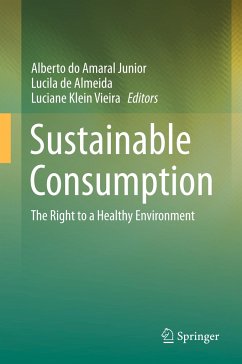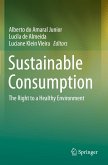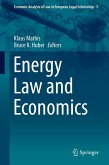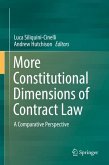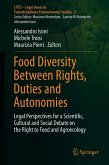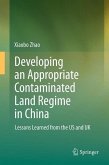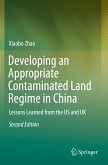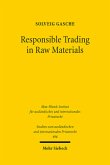This book provides a broad understanding of whether law plays a role in influencing patterns of sustainable consumption and, if so, how. Bringing together legal scholars from the Global South and the Global North, it examines these questions in the context of national, transnational and international law, within single and plural legal systems, and across a range of sector-specific issue areas.
The chapters identify how traditional legal disciplines (e.g. constitutional law, consumer law, public procurement, international public law), sector-related regulation (e.g. energy, water, waste), and legal rules in specific areas (e.g. eco-labelling and packing) engage with the concept of sustainable consumption. A number of the contributions describe this relationship by isolating a national legal system, while others approach it from the vantage point of legal pluralism, exploring the conflicts and convergences of rules between multiple international treaties (or guidelines) and those between the rules of international and transnational law (or both) vis-à-vis national legal systems.
While sustainable consumption is recognised as an important field of interdisciplinary research linking virtually all social science disciplines, legal scholarship, in contrast, has neglected the importance of the field of sustainable consumption to the law. This book fills the gap.
The chapters identify how traditional legal disciplines (e.g. constitutional law, consumer law, public procurement, international public law), sector-related regulation (e.g. energy, water, waste), and legal rules in specific areas (e.g. eco-labelling and packing) engage with the concept of sustainable consumption. A number of the contributions describe this relationship by isolating a national legal system, while others approach it from the vantage point of legal pluralism, exploring the conflicts and convergences of rules between multiple international treaties (or guidelines) and those between the rules of international and transnational law (or both) vis-à-vis national legal systems.
While sustainable consumption is recognised as an important field of interdisciplinary research linking virtually all social science disciplines, legal scholarship, in contrast, has neglected the importance of the field of sustainable consumption to the law. This book fills the gap.
"The rise of consumerism in the second half of the twentieth century brought the need to protect consumers, a phenomenon reflected in most legal traditions through predominantly private law approaches. Yet, by the end of the century, consumers had themselves become a threat due to the environmental footprint of their combined choices. Legal systems struggled to find solutions this time, largely because curtailing consumption is politically delicate. Over time, however, a wide range of techniques have been developed to bring consumption to more sustainable levels. Until now, these techniques remained scattered across different areas of law, with the resulting challenge for anyone interested in their forms and operation. This volume addresses this challenge by providing a comprehensive survey of the legal techniques developed to pursue more sustainable levels of consumption. The editors and contributors should be praised for offering such a comprehensive and timely account of this strategically important legal development".
Jorge E. Viñuales, Harold Samuel Chair of Law and Environmental Policy, University of Cambridge
"(...) This book with its broad scope that reaches beyond the core of consumer law and environmental law that engages into the political and economic dimension of sustainability, fills a huge gap in the academic literature. Those who are writing blurbs tend to use a kind of standard formula 'this is a must read for everybody working in the field'. Sustainable consumption: the right to a health environment goes beyond. The book formulates a political agenda on the law we need to realise sustainable consumption. In 1962 John F. Kennedy famously coined the formula 'consumers we are all'. The consumer rights he advocated and which form still the core of consumer policy programmes around the world, must be complemented by consumer responsibilities. There is no unlimited right to consumption at the costs of the planet. It is not by coincidence that the initiative to the current book stems from the global south. The contributions provide for a broad array of proposals of what could be done here and now and on what kind of law we need for achieving a different economy and a different society.
Hans-W. Micklitz, Professor of Economic Law, European University Institute
Jorge E. Viñuales, Harold Samuel Chair of Law and Environmental Policy, University of Cambridge
"(...) This book with its broad scope that reaches beyond the core of consumer law and environmental law that engages into the political and economic dimension of sustainability, fills a huge gap in the academic literature. Those who are writing blurbs tend to use a kind of standard formula 'this is a must read for everybody working in the field'. Sustainable consumption: the right to a health environment goes beyond. The book formulates a political agenda on the law we need to realise sustainable consumption. In 1962 John F. Kennedy famously coined the formula 'consumers we are all'. The consumer rights he advocated and which form still the core of consumer policy programmes around the world, must be complemented by consumer responsibilities. There is no unlimited right to consumption at the costs of the planet. It is not by coincidence that the initiative to the current book stems from the global south. The contributions provide for a broad array of proposals of what could be done here and now and on what kind of law we need for achieving a different economy and a different society.
Hans-W. Micklitz, Professor of Economic Law, European University Institute

